Mike Rietpietsch
Punk music, privileges and Karlsbader sandwiches
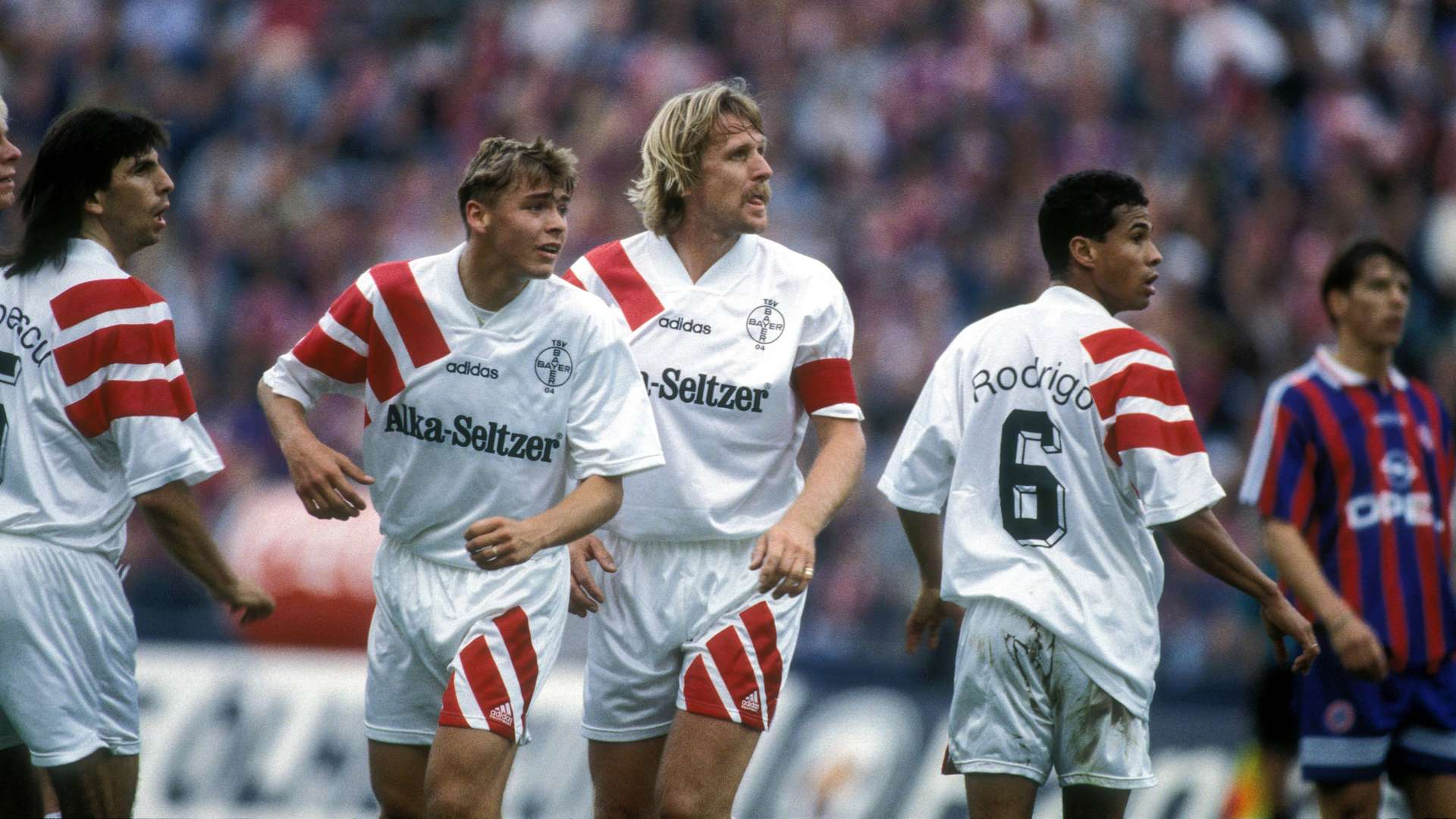
Mike Rietpietsch is centre stage in part five of the series '30 years of reunification' at bayer04.de. The Brandenburg-born player was at the Werkself for three years in the middle of the 90s and in the 'relegation final' of 1996 against FC Kaiserslautern he provided the assist for the permanently important equaliser at 1-1 scored by Markus Münch. He now provides an insight into his youth growing up in Frankfurt an der Oder. What was life like at one of the notorious sports schools in the GDR? What privileges did he enjoy? What musical did he listen to? And what was his experience of the turnaround in German history?
On the evening when the Berlin Wall fell, Mike Rietpietsch was sitting in front of the television with his aunt in Sonneberg in Thuringia. The 'toy town' was about three kilometres away from the inner German border. "It was the back of beyond and not the place to have your finger on the pulse of time," said Mike. He was 15 at the time and only there as a visitor from Frankfurt an der Oder. He looked in amazement at the images of people crying tears of happiness in Berlin. "But I didn't celebrate and the whole thing didn't particularly move me," he said looking back at 9 November 1989.
He was doing well at the time and didn't miss out on anything. He was at the children and youth sports school (KJS) in Frankfurt an der Oder where GDR stars like Henry Maske were trained and educated. "Although that was a relatively normal pathway in the GDR: If you could walk in a straight line then you went to the sports school. They picked you out in kindergarten and then you were guided to the clubs."
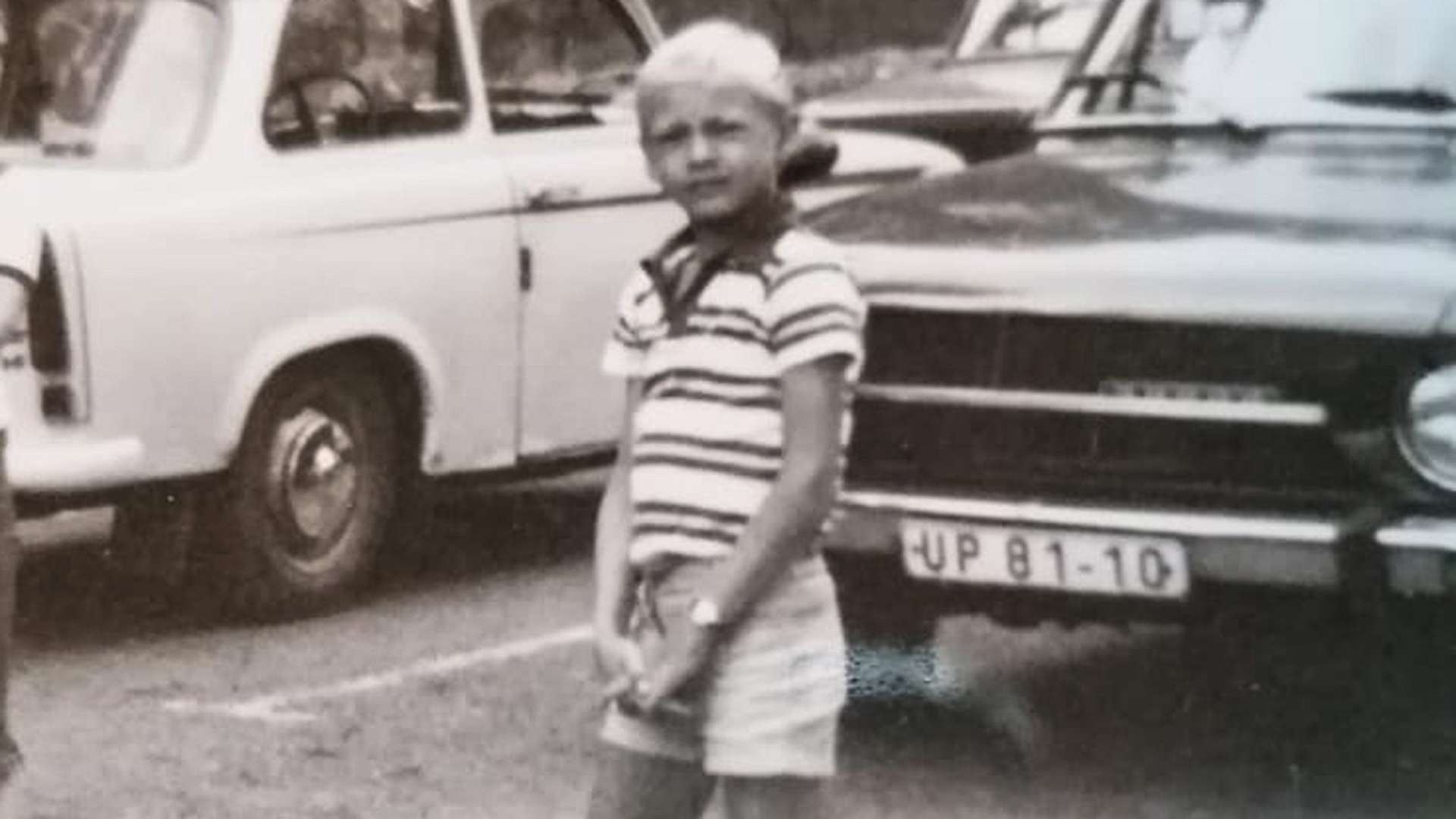
Mother lodges a veto
Mike grew up in Eberswalde, 60 kilometres north-east of Berlin. He started playing football at BSG Stahl Finow. When they recognised the talent of the lad on the ball they wanted him to go to the KJS at the age of twelve. Mother Elvira lodged her veto. "'No, not yet, he's my only one and is staying at home for another year,' said my mum," explained Mike and he had to laugh.
At the age of 13, he was finally allowed to go to Frankfurt-Oder. Daily life was strictly controlled in the boarding school: two hours of lessons, two hours of training, one hour for lunch, two to three hours of lessons and another two hours training. But the youngster liked life at the sports school. Especially as he only started to earn decent money when he started his apprenticeship as a car mechanic. Anybody like Mike, who didn't have A-levels were in the C squad and they received 500 marks apprenticeship money and the same amount again for playing football. "1,000 marks was really a lot of money at the time for a teenager," said Mike. That pretty sum and his status as a talented footballer enabled Mike to enjoy a privileged life in the workers and peasants state. The players also enjoyed a special status at the sports school. Anyone who was smart could easily find a bit of diversion from the mainly miserable life and the boarding school.
Beer for the boxers
You only had to have a good relationship with the weightlifters and boxers. They were strategically well-placed on the ground floor while the football players had their rooms in the fourth floor of the school. If you wanted to beat the curfew then there was only one way: "When we were good boys reporting in to the people in charge at 10 o'clock and went back to our rooms, we quickly put on our dressing gowns and went back down past the security and through to the weightlifters or boxers. And then it was through the windows and off to the disco." The footballers were grateful as a rule and were happy to donate a couple of cold drinks to their muscular boarding school colleagues. "A beer cost 40 pfennigs back then; you could go a long way on ten marks," said Mike. If there was any trouble you just sent the big schoolmates to the front. The only thing is not to get caught during these nightly excursions. Anybody caught more than once had to pack their bags. "For them it was the end of their career as an athlete."
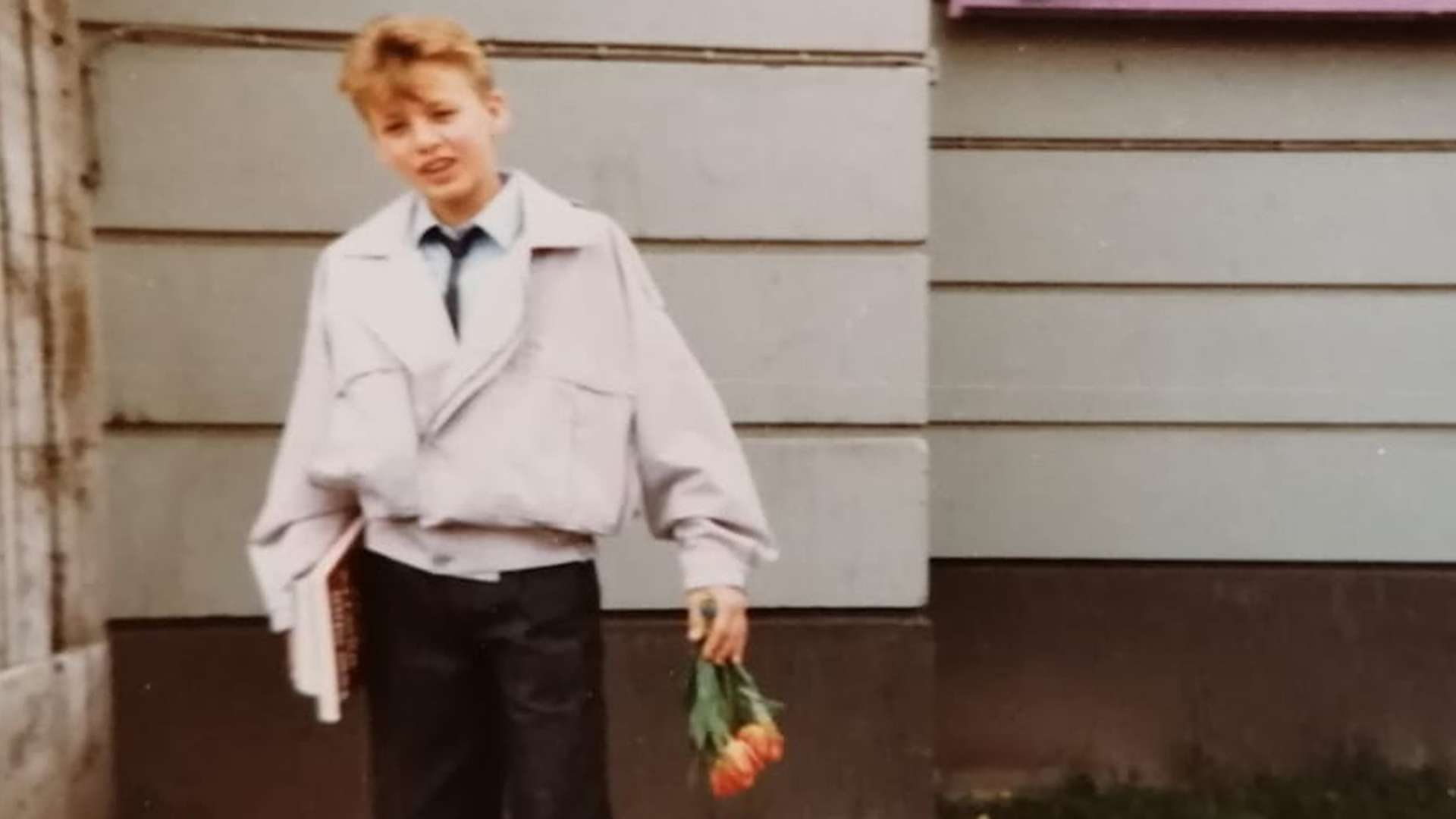
Punk instead of Puhdys
As the was one of the clever lads, and also in the money, life was really pleasant for Mike Rietpietsch at the end of the 1980s. He rarely if ever dreamt of trips to Spain or Italy. The Baltic coast and Harz Mountains also did the job. Occasionally he went to Poland with a couple of mates, "where you could get a Coca-Cola." His grandmother was allowed to travel to West Germany from time to time. She brought back packages with Western goods that were only otherwise available in the Intershop – the supermarket of the West in the GDR. "Ah, the Intershops," Mike remembered. "We could cash in forum checks there. Everybody in the GDR knew that special smell of the Intershop: a mixture of washing powder and chewing gum. I always used to buy spearmint chewing gum there. Or chocolate from the West. Sometimes there was enough money for a pair of trainers."
Mike's taste in music was also shaped by the West. He couldn't be doing with GDR bands like the Puhdys, Karat or City, which he only discovered much later after the fall of the Berlin Wall. Most of his friends from Eberswalde were into punk and some of them were punks. "We listened to the Sex Pistols and Bad Religion plus Die Ärzte who had their roots in punk rock," said Mike. As he wasn't a record collector, he recorded the songs from (Western) radio on his cassette recorder, which he was given at his youth ceremony. "And you had to be lucky that it not only played music but also recorded." Meanwhile, his training to be a footballer followed its completely normal socialist path. Mike played for the army sports club FC Vorwärts Frankfurt in the GDR league, the second tier. Later, he was already established with the GDR Oberliga and the national team his targets. He could well imagine playing for Dynamo Dresden. As an 11-year-old, he saw the legendary 7-3 defeat for Dynamo at Bayer 05 Uerdingen in the UEFA Cup on television. "What a game, what a drama. I was completely done in after the final whistle," he recalled. Or he would have stayed in Frankfurt/Oder and probably would have followed the classic soldier's career alongside being a footballer.
First steps as a professional at Union
But then came the turning point and the fall of the Berlin Wall. As little as the political events affected him initially, they turned his life upside down in time. Mike was now living with a teammate in a one-room flat when he received an offer from FC Union Berlin.
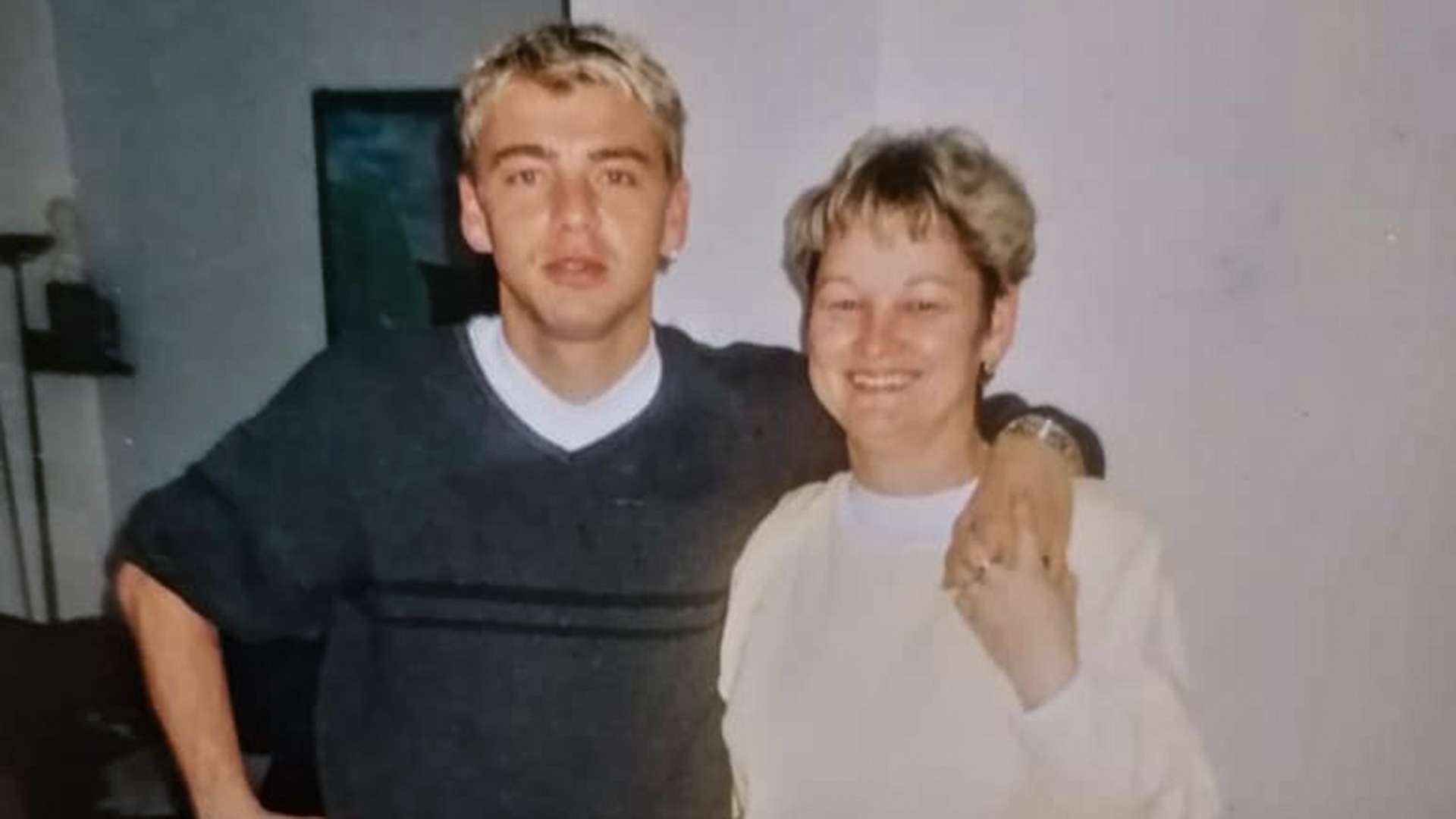
At the age of 20, he signed for Union in the capital of Germany reunited three years before. Coach Frank Pagelsdorf converted the midfielder into a defender because the established right-sided defender Marko Rehmer suffered a serious injury. Rietpietsch broke off his apprenticeship as a car mechanic and focused exclusively on football and at Union – where Sergej Barbarez also played before later moving on to Leverkusen as well – he became a champion of the Oberliga North-East.
A flying start in the West
Bayer 04 scouts had watched him at a number of games and said he was good. The now 21-year-old received an offer from the Bundesliga club and he risked the move to the Rhineland. "Before the turnaround I always thought; The people in the West are better. But when I saw how Thom, Kirsten and Sammer rocked the Bundesliga then it was clear to me that we from the East could not only compete but were actually better trained as footballers," said Rietpietsch.
He did have plenty of respect for big names. But when the chance came to get on board this merry-go-round he had to take it. "I sat next to Bernd Schuster in the dressing room plus Ulf Kirsten, Andy Thom, Paulo Sergio, Ioan Lupescu and a bit later there was also Rudi Völler – that was an incredible group."
The only instep shot of his career
‘'Riete', as his friends called him, stayed at Bayer 04 for three years, making 'only’ 30 appearances for the Black and Reds. But without him it is possible the club might have been relegated from the Bundesliga in 1996. Then it was the cheeky Easterner, who on the last matchday against FC Kaiserslautern on 82 minutes with the score at 1-0 down, plucked up the courage and laid on perhaps most important goal in the club's history with his long-range effort. He will never forget that scene: "My only job in the match was to take Uwe Wegmann of Kaiserslautern out of the game. But because he didn't do much at the back I was able to move forward from time to time. Rudi Völler played the ball to me in midfield and I thought: Dammit, nobody is challenging me and I wasn't able to lay the ball off – so I just had a go. I think it was the only instep shot of my career, otherwise I was more into curlers."
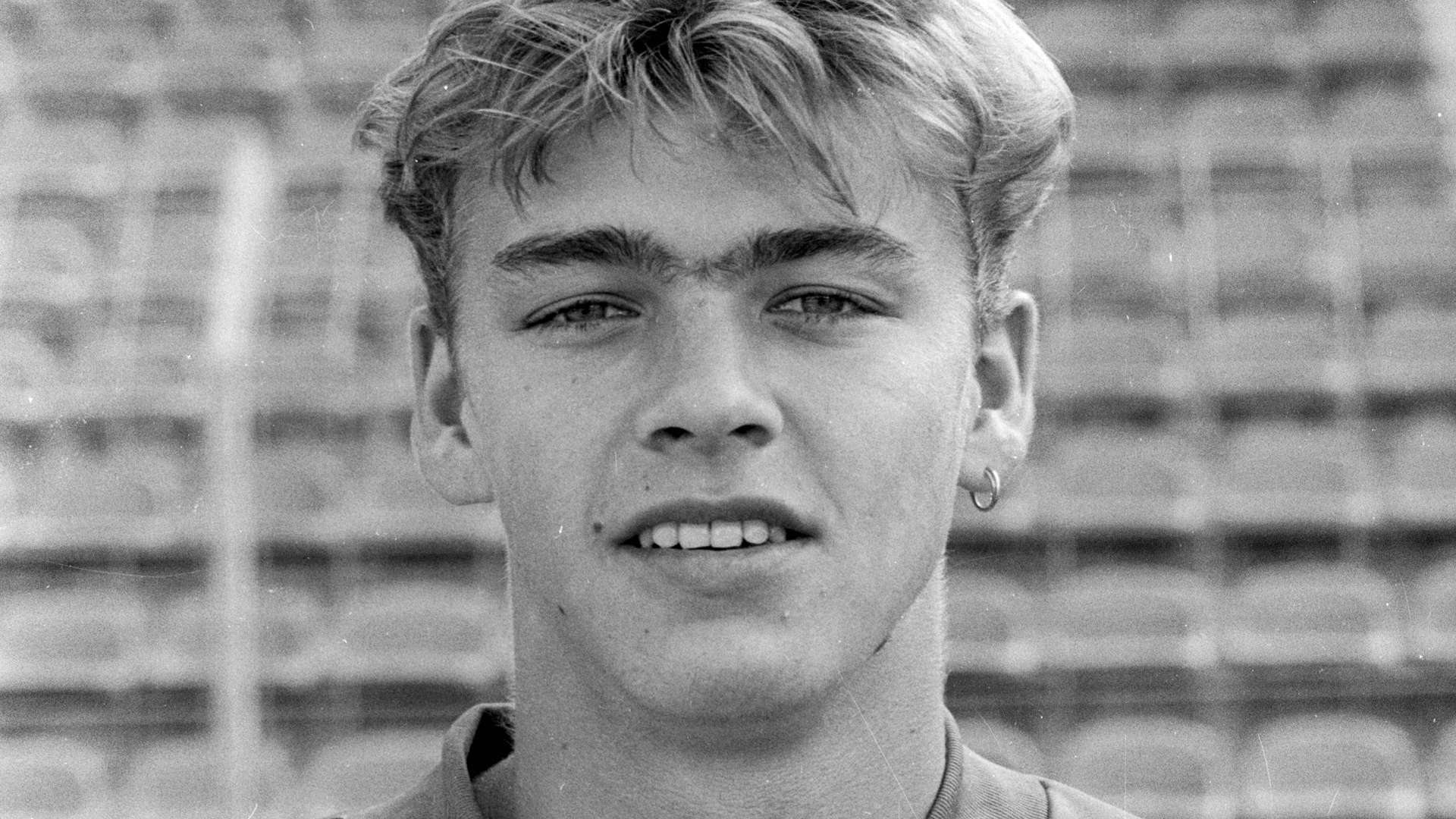
Der Rest ist bekannt: FCK-Keeper Reinke konnte Rietpietschs Flatterball nur nach vorne abklatschen, Markus Münch drosch den Ball zum 1:1 in die Maschen. Klassenerhalt! „Wir haben gefeiert, als wären wir Meister geworden. Dabei war es eigentlich eine Frechheit, dass wir mit diesem Kader eine solche Saison gespielt hatten“, erinnert sich Mike, der Bayer 04 ein Jahr später verließ und dann auf eine lange Wanderschaft durch Fußball-Deutschland ging. Düsseldorf, Freiburg, Bochum, Oberhausen, Duisburg, Kiel, Wuppertal, Bonn und Ratingen hießen seine weiteren Stationen. Nur in Oberhausen blieb er länger als drei Jahre.
Lebemann mit großer Klappe
Mike Rietpietsch, eine „Berliner Schnauze“ par excellence, weiß, dass er mehr aus sich hätte rausholen können. „Zum einen hat mir meine große Klappe das eine oder andere Mal geschadet, weil Trainer wie Volker Finke oder Ernst Middendorp gar nicht darauf konnten. Zum anderen war ich auch immer ein bisschen Lebemann, der gerne sein Bier trinken gehen wollte.“ Der heute 46-Jährige sagt das ganz ohne Groll. Er bereut fast nichts. Nur, dass er 1997 das Angebot von Christoph Daum abgelehnt hat, in Leverkusen zu bleiben, anstatt nach Düsseldorf zu wechseln, das bedauert er tatsächlich im Nachhinein. „Wahrscheinlich hätte ich noch ein paar erfolgreiche Jahre bei Bayer haben können.“
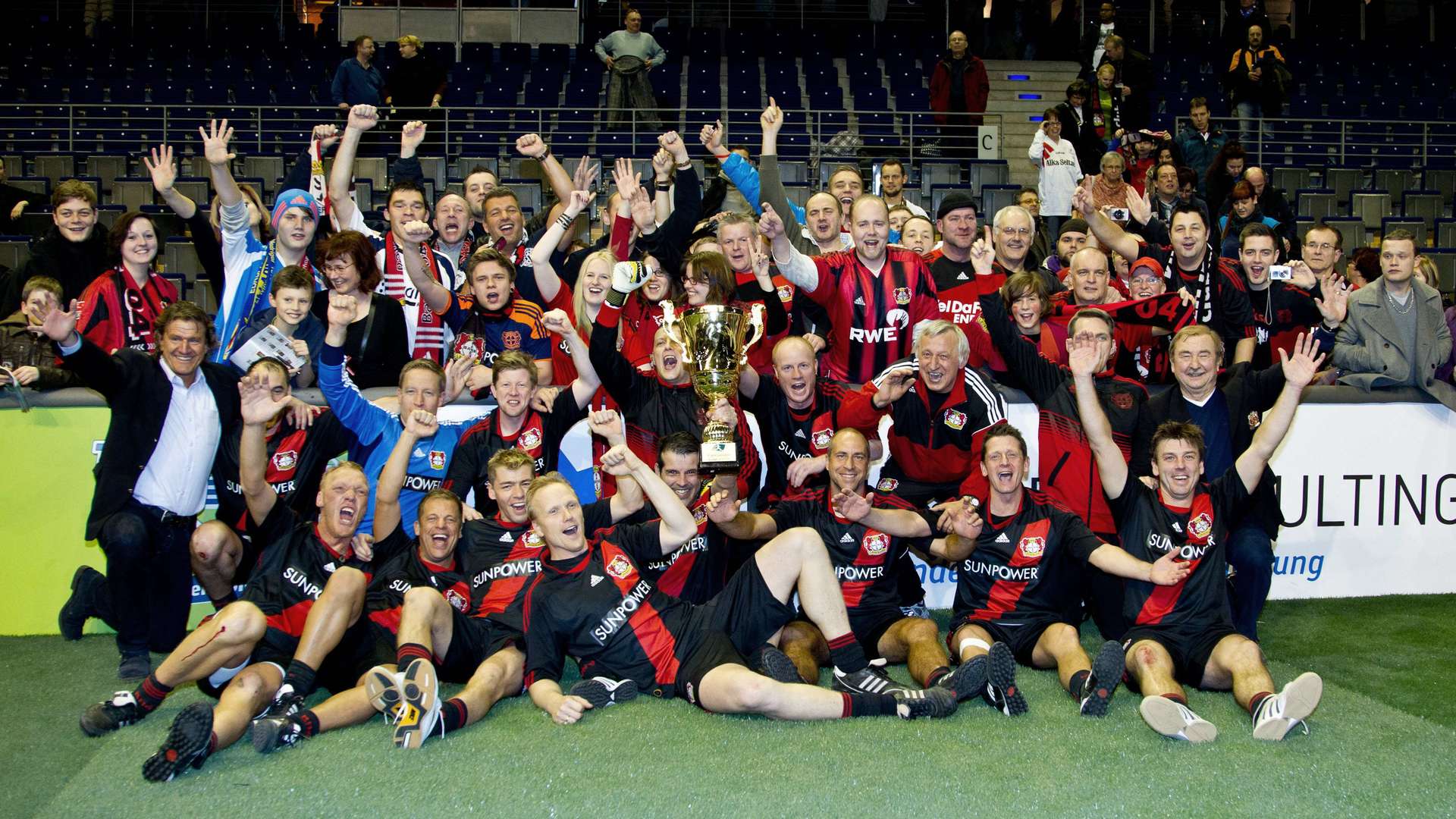
Be that as it may. Rietpietsch is happy and since 2012 has been living with his partner Silke in Leipzig. He has a very good relationship with his ex-wife and phones his two children every day. He runs the Subline Sports company that produces individual shirts using the so-called sublimation process and he is co-owner of the Kick'n Body soccer school based in Munich, Osnabrück, in the Ruhr area and in Leipzig.
In the trade fair city, Silke, who is six years older than Mike, experienced the turnaround in 1989 completely differently from Mike. "She joined in with the Monday demonstrations. And she tells me today when she looks at the film of it on television documentaries that it was an incredible good stroke of luck that nobody lost their nerves and everything remained peaceful." While Mike watched television in 1989 with amazement but almost unmoved, his partner of today moved on to Berlin straightaway to experience the bright lights on the Ku'damm. "I was privileged and didn't miss anything while she felt trapped and yearned for freedom."
Karlsbader sandwiches, solyanka and Co.
Today they are both happy to indulge in a bit of Ostalgia. No, they don't want to go back to the GDR. "But thank God a lot has remain unchanged and is available again," Mike laughed and talked about a golf tournament in Zwickau where he was given a camping bag – that is a rucksack – full of typical GDR things. There was also a stall selling Karlsbader sandwiches, an Eastern version of Hawaii toast – only with gherkins instead of slices of pineapple. The only thing missing for complete happiness was a portion of ragout and a bowl of solyanka, a casserole that originally came from Russian cuisine.
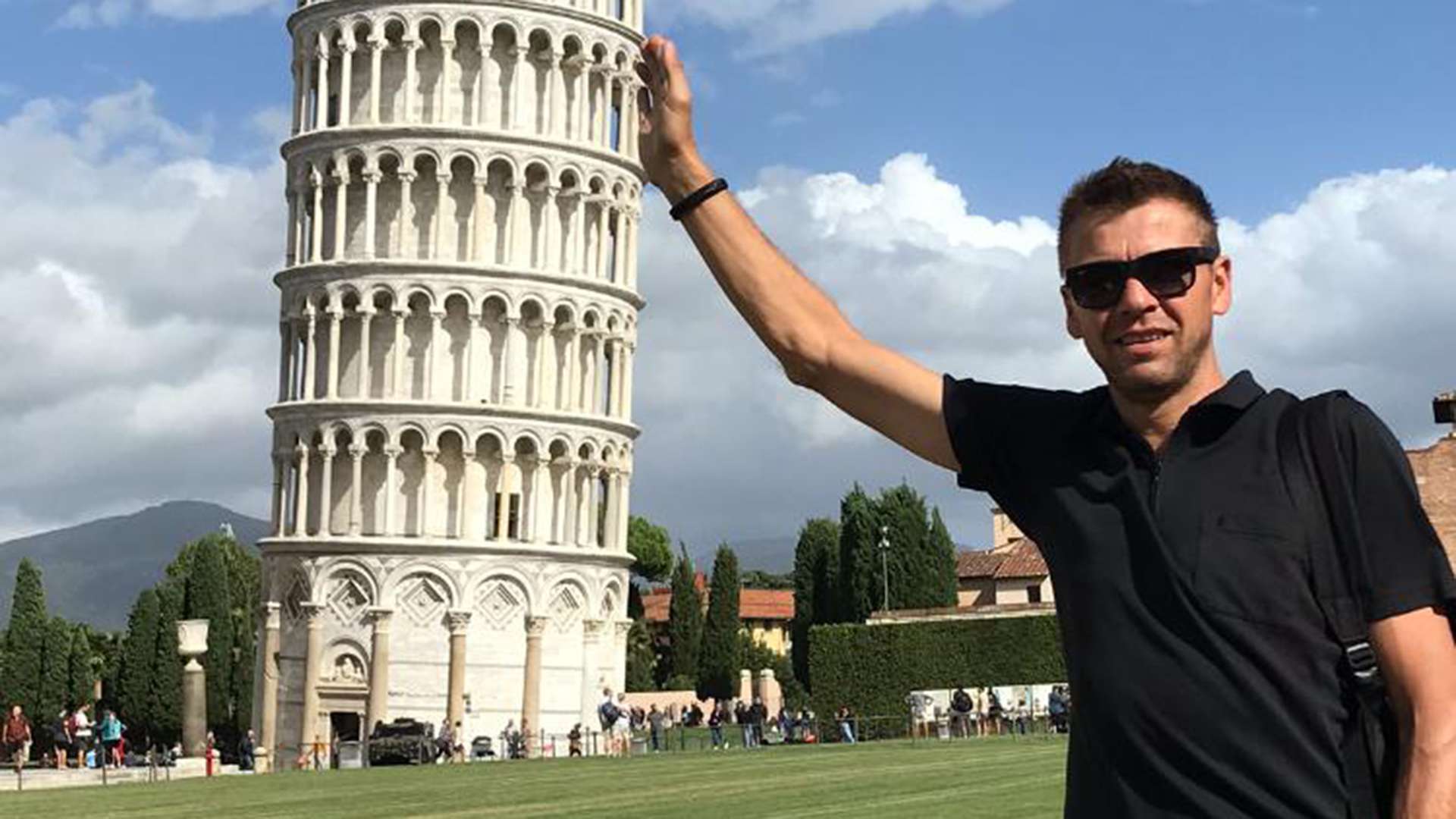
Just in time for the Day of German Unity, Silke and Mike are returning from a trip through Tuscany lasting several weeks. They were en route with their motorhome in Siena, Lucca and Pisa. A tour that would have been impossible for both of them before the fall of the Berlin Wall.
Click here for the other parts of the series:
Part 1: 30 years of reunification – A lucky break for Bayer 04
Part 2: ‘Scholle’s’ game for the history books
Part 3: Reiner Calmund: “I had tears in my eyes"
Part 4: Falko Götz: ‘Very happy the move proved to be a success'